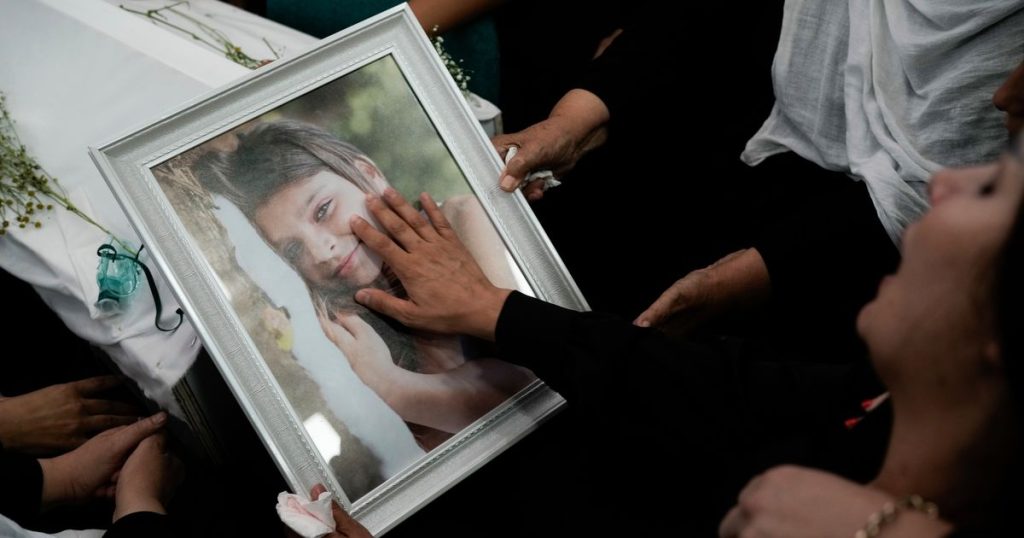The Middle East is on edge following a rocket attack from Lebanon that killed 12 children and teens playing soccer in the Israeli-controlled Golan Heights. Israel believes Hezbollah is responsible for the attack, which has raised fears of a broader regional conflict. The incident comes at a sensitive time, with Israel and Hamas negotiating a cease-fire proposal to end the ongoing war in Gaza. Both Israel and Hezbollah have carried out strikes in response to the attack, with no immediate reports of casualties.
The rocket strike took place in the Druze town of Majdal Shams, located near the Syrian border. The Druze community is a religious sect with populations in Israel, Syria, and Lebanon. Druze residents in the Golan Heights have traditionally had a more complicated relationship with Israeli authorities due to the area’s disputed status. Israel captured the Golan from Syria in 1967, with much of the international community viewing it as occupied territory. The tragic attack has deeply affected the community, with thousands attending the funeral procession for the victims.
The deadly attack has the potential to escalate into a wider conflict between Israel and Hezbollah. Israeli Prime Minister Benjamin Netanyahu has vowed that Hezbollah will pay a heavy price for the strike, indicating a possible harsher response from Israel. Despite the denial of responsibility from Hezbollah, U.S. Secretary of State Antony Blinken has stated that every indication points to the group being behind the rocket attack. The ongoing conflict has already resulted in significant casualties on both sides, with airstrikes in Lebanon killing hundreds of people, including civilians.
The situation on the Israel-Lebanon border has been tense since the conflict in Gaza began in October. While the attacks have mostly remained below the threshold of all-out war, the tragic toll on innocent children and teens in Majdal Shams could push Israel to respond more aggressively. Hezbollah’s superior firepower compared to Hamas poses a challenge for Israel, which is already engaged in the conflict in Gaza. The potential involvement of Iran, which has warned of unprecedented consequences, adds another layer of complexity to the situation.
The attack in the Golan Heights has also raised concerns about its impact on the war in Gaza. Egyptian officials have noted the interconnected nature of the conflicts, with a potential cease-fire in Gaza having implications for Hezbollah’s actions. The Egyptian foreign ministry has called for urgent international intervention to prevent further escalation and spare the region from disastrous consequences. Efforts are underway to negotiate a cease-fire deal in Gaza, with officials from the United States, Egypt, and Qatar meeting with Israeli counterparts in Rome to address the situation.
Overall, the rocket attack in the Golan Heights has heightened tensions in the region and raised the specter of a broader conflict involving Israel, Hezbollah, and potentially Iran. The tragic loss of life in Majdal Shams has underscored the need for immediate international intervention to prevent further escalation and mitigate the impact on ongoing conflicts in Gaza. The situation remains fluid, with the potential for further violence and instability in the days ahead as efforts continue to secure a cease-fire and de-escalate tensions in the region.


